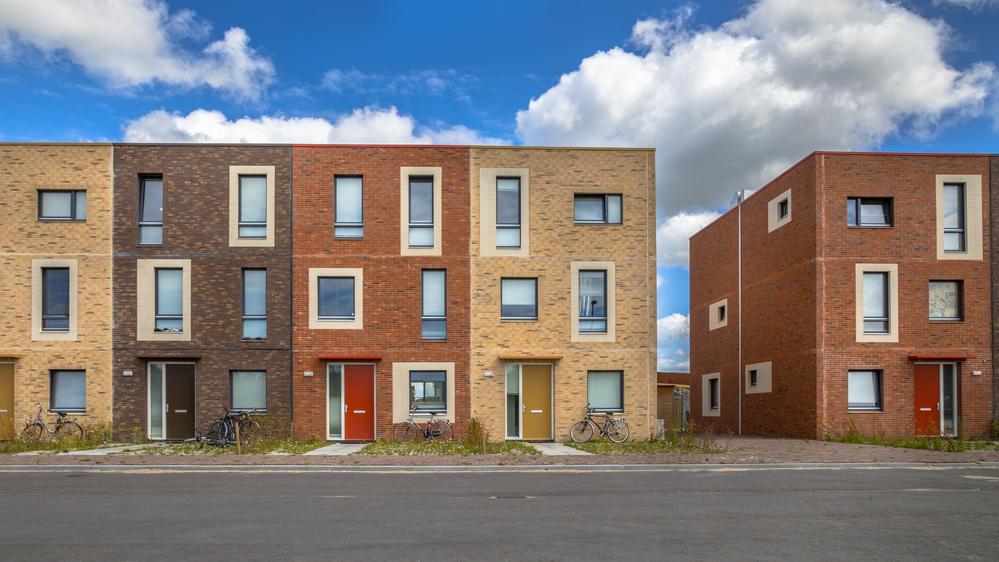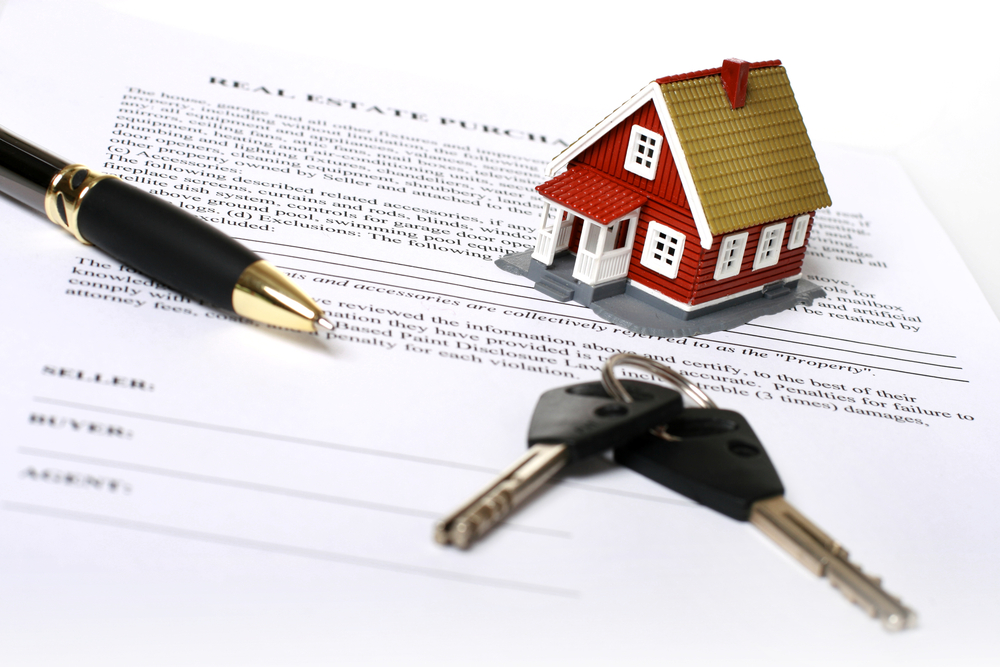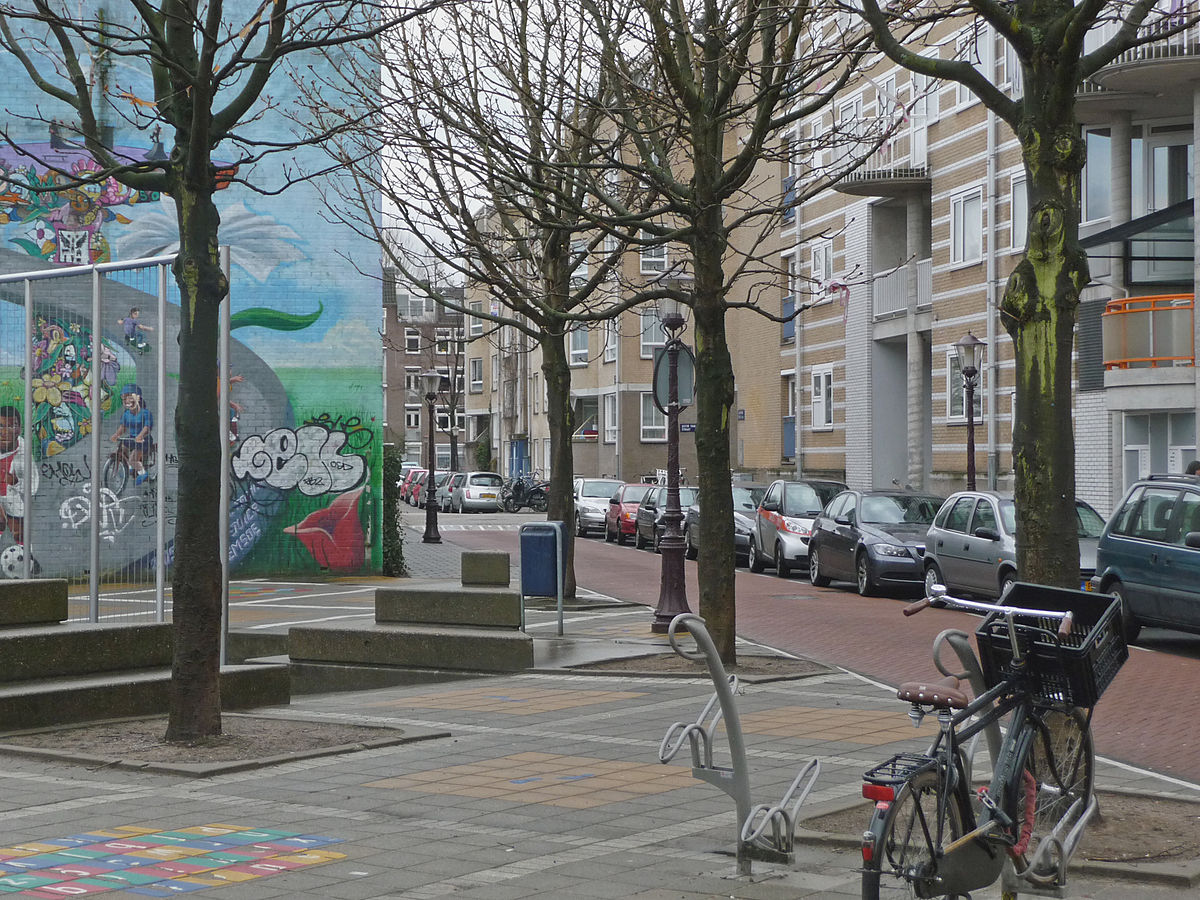Trying to decide where to live in the Netherlands or moving from house to house can be a nightmare. In fact, moving anywhere can be stressful. It doesn’t even matter why you’ve come to the Netherlands, whether you’re a student or moving here for work, it can be a struggle.
There are so many different things to consider, such as rental cost, type of property, the property’s location, etc., which can be extra confusing if you’re an international.
Plus, to add to the list, the Netherlands has both social and private housing. But what exactly is the difference, and which is right for me? Here is all you need to know.
Social housing in the Netherlands
What is social housing?
Let’s get back to basics. The Housing Act (1902) recognises that affordable housing in the Netherlands is a shared national responsibility.
It is generally designed for people who have low income, have a disability, are vulnerable in some way or are elderly.
In short: Social housing in the Netherlands is housing where the rent is subsidized to make it more affordable.

What is considered a subsidised home?
In government-subsidised homes, housing associations are required to keep the rent below the limit of €752.33 in 2021 (it was €737.14 in 2020).
If all residents are under 23 years old, rent may not exceed €442.46, unless a child is also living there, in which case the rent can still be €752.33.
A strictly designated 80% of these homes are rented out to people with an income no higher than €39,055. Another 10% of these homes are for people with an income between €39,055 and €43,574.
READ MORE | €50,000 subsidy when you buy a house in the Netherlands? Yep, it’s about to happen
The additional 10% is available to people with higher incomes. This is the percentage the social housing associations must keep to, although income standards change from year to year.
Applying for social housing in the Netherlands
To apply for social housing, you must first register with your region’s social housing association. Check with your municipality to find your local organisation.
Often, you need a housing permit, which can be requested through your municipality. You may need to provide reasons why you want to live in that specific region (e.g. you work there or have family in the area).
Once you’ve applied, you will be part of a waiting list.
The housing organization that you’ve registered with will have a website you can visit with all of the available properties. You then need to apply for the property you’re interested in.
There are usually many people going for the same property, and as waiting lists are long, many things will be considered.
Of course, one of the requirements is that you do not earn above the yearly income that was mentioned earlier. Your family size will also be taken into account. Also, how long you have been on the waiting list.
As a whole, every aspect is considered, and the right house goes to the right person (for example, if you’re highly vulnerable, you would be considered an urgent case).

What is the housing points system?
There is a points system in the Netherlands for social housing, which determines the value of the property in which you’ll be living. This then determines how much the rent will be.
So, how does it work? Well, points are awarded depending on whether the property is self-contained, its size, and what facilities are included.
The higher the points, the higher the rent. If you feel the number of points is incorrect, you can appeal the decision and have a rent re-assessment.
If the rent is too much and you’re struggling to pay, you can apply for a rent allowance.
What are the responsibilities of housing associations?
Housing associations are responsible for more than just social housing in the Netherlands — they are responsible for the whole neighbourhood.
This means they should clean up any graffiti and help prevent anti-social behaviour.
Housing associations also help with maintaining children’s parks and sports facilities, streets, parking, housing, and everything.
They also have to appoint caretakers for the area. Basically, they’re responsible for making sure that the neighbourhood is kept in top condition.

How do I make a complaint about my housing association?
If you want to complain about your property, you can go to the actual housing association complaints committee to submit your complaint. This should be your first course of action.
If the dispute is not resolved, you can take it to a rent tribunal (huurcommissie), which is an agency that can help solve disputes with housing. It has nothing to do with the court but aims to resolve the dispute. (Normal cost: €450 for a company and only €25 for a regular person).
If the landlord is the issue, complain to the landlord first. Then, if it is not resolved, you can take it to the landlord’s complaints committee.
If it still is not resolved, this dispute can go through a rent tribunal. You do this if your complaint has not been resolved, and they should be able to assist you. Any sort of complaint can be forwarded to them, as long as it has to do with housing.
Private housing in the Netherlands (free-sector)
Private housing in the Netherlands has a lot more flexibility than social housing.
To start, you can find your housing using various online platforms, real estate agencies, newspapers, and social media groups. Popular websites for listings of apartments in the Netherlands include Funda and Pararius.
For a start, contracts are liberalised, which means that there is more flexibility for the landlord and tenant when it comes to the rental price and what it includes.

This means that there is no maximum rent, however, with the steep rise in rental prices, in some places, they have started to cap this. There is also no points system in place.
How do tenancy agreements work in the Netherlands?
Tenancy agreements (rental contracts) in the private sector can be either written in a contract or can even be an oral agreement.
However, an oral agreement is never advised without some sort of evidence (such as a witness), just in case something goes wrong.
READ MORE | BREAKING: Dutch cabinet hoping to implement a cap on free-market rent
Your tenancy agreement in that property can either be for a fixed period or indefinite. So what’s the difference?
A fixed-period contract is the more common of the two contracts. It means that your tenancy agreement has an end date. It’s still essentially an indefinite contract but with a minimum fixed term of six to twelve months.
When the agreement expires, many landlords give the option to move to an indefinite agreement.
With an indefinite agreement, your contract doesn’t have an end date, but you will need to give your landlord an official notice at least one month before moving out.
In the same regard, they will need to give you a 30-day heads-up if they want you to move out.
What can you expect to find in your tenancy agreement?
You should usually find the rental price (sometimes a date that it may increase will be present), your landlord’s personal information, your personal information, the address of the property, any rules for living on the property and both of your signatures.

Any additional charges should also be present on the agreement, such as utility charges (if applicable) and service costs.
Note: Look out for any dodgy charges there, they aren’t just allowed to charge you for anything (for example, key holding charges).
Furniture may or may not be included in the rental cost (if applicable).
What are the responsibilities of the landlord and the tenant?
As with social housing, the overall responsibility of the property falls on the landlord. However, some things also fall on the tenant too, so you need to be aware of this. For example, the landlord has the responsibility to ensure that:
- The building is safe to live in;
- All major repairs are carried out at their own expense;
- All repairs should be done promptly;
- They should not be coming to the property without good reason, often or uninvited (unless it’s for major repairs).
The tenant also has responsibilities when living in a privately rented property. The tenant has the responsibility to ensure that:
- Minor repairs are dealt with by them;
- They pay for these minor repairs (as long as they are not expensive);
- They allow the landlord to come into the property while carrying out their repairs/maintenance.
How do I make a complaint about my landlord?
Your first course of action would be to complain to the landlord. If there is no resolution, you can take this up straightaway at a rent tribunal.
Complaints can range anywhere from unfair fees to poor maintenance. Basically, if you have an issue that is not being resolved, they can help you.
Need a more extensive guide to private housing in the Netherlands (and Dutch rental agencies)? Then check out this guide for all of the nitty-gritty that you need to know.
Or, are you looking for cheaper housing that isn’t social housing in the Netherlands? Anti-squatting dwellings may be the answer.
Have we missed anything to do with private or social housing in the Netherlands? Tell us in the comments!






If a senior American citizen wants to move to Amsterdam within the next two or three years, can they apply for senior housing ahead of moving there? My son resides in Amsterdam, so can he apply on my behalf?
Most municipalities require you to be registered with them first as well as have BSN number. So it is unlikely. You should find which housing corporations offer social housing in Amsterdam and check what requirements they have.
Good afternoon, I want to know about how we can get social flat in Netherlands? Thanks
Hello Daiva! We currently don’t have any articles on this topic, but here’s what we found on the Dutch government website: https://www.government.nl/topics/housing/rented-housing
Hope this helps! ☺️
Can a student apply for social housing on even though as a student he doesn’t have up to the incomes mentioned above but he or she works and want to start counting his points and possibly paying gradually for years as his own investment?
Hello. We are family who looking for social house. I have two kids . One is 11years old and second is just 4month old baby.. situation is like this that we want move beck to Nederland.if be good around Amsterdam region. But we don’t have place to even I can stay. My older kid has already BSN number from SVB ..Please help.